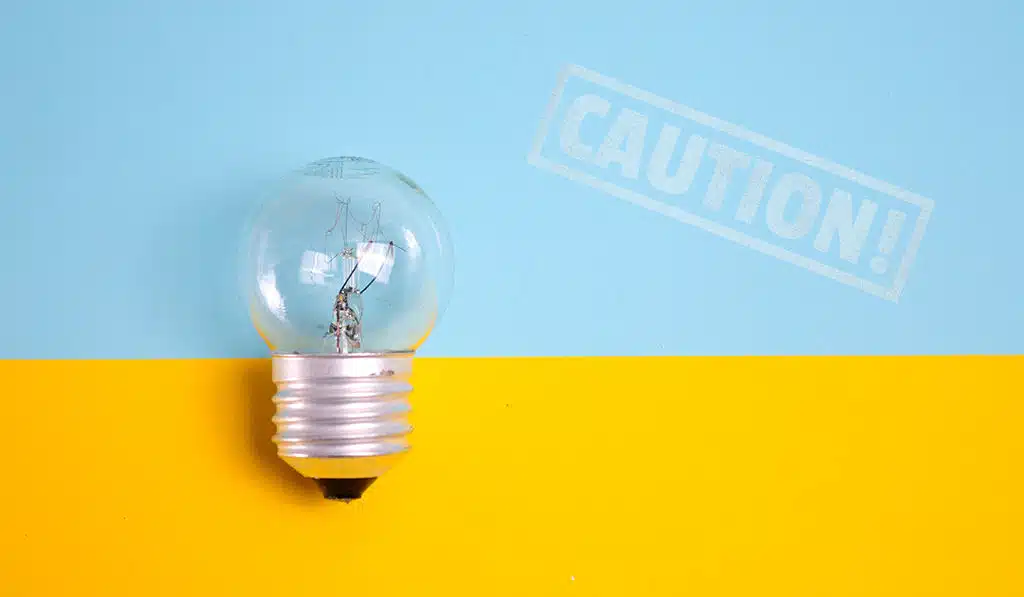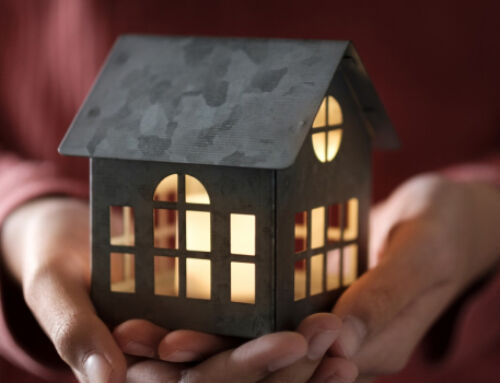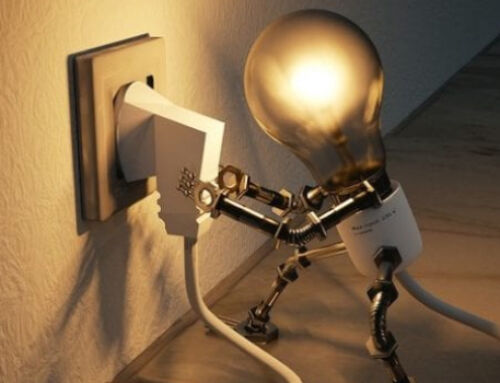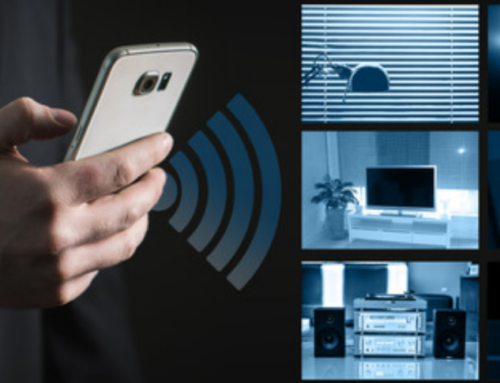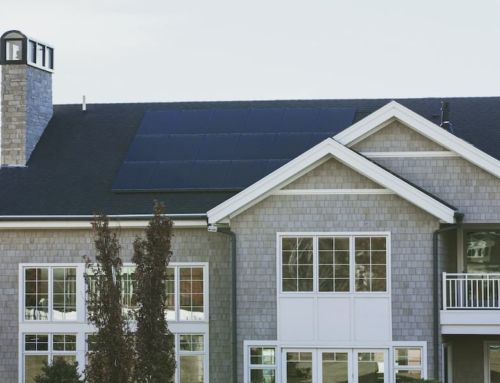Electricity is one of the most useful things in our lives, it helps us cook dinner, light our homes, and connects us to the internet. It is, however, a very powerful energy and if it isn’t used with safety it can be potentially hazardous. Electric devices and appliances as well as cords, outlets and adapters, need to be well maintained and located in areas that are constantly safe and out of harm’s way.
Electricity is no doubt very useful, but it also needs to be treated with respect. Here are some electrical safety tips that everyone should follow when using electric devices.
Don’t Piggy Back or Overload Adaptor Cables
Adaptor cables should never be ‘piggy backed’ or ‘daisy chained’. Plugging one adapter into another is a huge risk for electric fault and should be avoided at all costs. Similarly overloading an adaptor can put too much pressure on a single outlet which can also cause a fault.
Powerboards should never be used as a replacement to powerboards and if you find that you are constantly in need of them to use all of your appliances, it’s probably best to hire an electrician to install more powerpoints. Another point to consider is that some powerboards do not have surge protection, which can trip your circuit, leading to blackouts and in the worst case fires.
Watch Out for Damaged Electric Plugs, Sockets and Cables
Electrical cords don’t last forever and just like most things in life, they need replacing. Electrical power cords can fray over time and extensions and plugs can crack with overuse, so it’s important to keep checking electrical goods to make sure that they are in proper working condition. Outlets should always be cool to touch, so if you ever notice any heat, it’s a good indication that something isn’t right.
Faults in the insulation of cables can prove to be hazardous, as they will no longer provide protection for electric shock. A single exposed strand can cause burn or shock, so be sure to replace any damaged cords.
Appliances Need Air Circulation
Appliances need space to breathe and without adequate room, electrical equipment can quickly overheat. Appliances that get hot are a hazard, they can short out, and in the worst case, cause fires, so make sure that they have enough space for proper air circulation.
Avoid using electrical items in cupboards and also be sure to keep appliances away from fabric items as they will tend to overheat easily. A common malpractice is running cables under rugs, or carpets. Not only do they damage easily and provide a tripping hazard, but they will also overheat much faster.
Water and Electricity Don’t Mix
It’s a well-known fact that water and electricity aren’t the best of friends and there are a few things you can do to make sure that they don’t have a dangerous encounter at your home. Electrical equipment should be kept away from all sources of water or moisture, such as sinks, plants, showers and taps.
Another tip to consider is to always make sure that your hands are dry before plugging or unplugging devices. If your home ever experiences a leak, there is the potential for it to reach power circuits in your home, so be sure to contact a licensed plumber.
If Your Not Using it Unplug It!
If you’re not using an appliance, the best thing to do is to unplug it. Energy can drain even when a device isn’t in use, this is called ‘phantom draining’, but aside from saving you money, it could also save your appliance in the advent of a power surge.
Keep Your Cords Safe
If a cable isn’t in use, it should be stored away safely. Kids and pets have a hard time distinguishing power cables from toys, so the best bet is to safely wind the cable and store it in a cupboard.
Cords should never be stretched or placed somewhere where they will conduct unnecessary heat. This can lead to damage in the cord’s insulation, as well as the wires within.
Electrical safety tips in the workplace
Although electrical safety is important at any given time and at any given place, it should be treated as an utmost priority in the workplace or office.
There are several different aspects of electrical safety tips that you need to consider in the workplace. Check out our handy guide below.
Electrical appliances
Any workplace is a host to all kinds of appliances, such as computers, AC systems and kitchen devices. There are a few things to keep in mind when using the appliances:
Checking appliances regularly for faults
- Using instruments how they were designed to be used
- Ensuring portable equipment has built-in safety switches
- Buying equipment with approved markings and in accordance to your workplace type. Any item to be used in a high-risk environment should be tested and labelled as safe in accordance with relevant safety standards before it is used.
Powerpoints
Powerpoints can easily present a number of risks and as such, are an important consideration. Remember that:
- Powerpoints should never be overcrowded
- Appliances should be unplugged rather than yanked out of the powerpoint
- When plugging in and unplugging appliances, make sure the plug switch is off
- Report damaged sockets, and label them as unsafe.
- All sockets should have safety switches and be adequately labelled.
Powerboards and leads
In order to manage risks associated with power boards and extension leads:
- All power boards should have overload protection and integrated on/off switches
- Powerboards must be kept well ventilated, clean and above floor level where possible
- Extension leads should not be a permanent solution for power distribution and should always be laid safely
- Cords and leads should be in good condition, heavy-duty and checked for faults before use.
Lighting and heating
There is a number of safety precautions that are relevant to heating and lighting in the workplace. They are:
- Avoiding the use of unsafe halogen lamps
- Ventilating fluorescent lights to avoid overheating
- Switching off lights with any damaged wires
- Never leaving a workplace unattended when lights or heating are in use.
Electrical safety tips in your backyard pool
While Summer has come to an end, our backyard pools still have plenty of use still left in them before Winter comes around. As such, it is essential to practice electrical safety around our pool at all times.
Electric dangers in and around the pool can result in electric shock, injury and even death. Check out our simple tips to help avoid this danger and enjoy your pool.
Keep electric equipment away from the pool
While it might seem obvious, water and electricity can be a recipe for disaster. As such, pool owners must take extreme care when electric equipment is set up in close proximity to the pool area. Equipment that is not designed to operate in water such as televisions or radios can fall into the pool. As a result, these appliances place a current of electricity into the pool. If you touch a metal pool ladder or metal net handle in the energised water, it can cause a person to be electrocuted. It is a good idea to have at least two metres between the electric equipment and the edge of the pool, to avoid it falling in and creating extreme safety hazards.
Be cautious of pool lights
Underwater lights in the pool are a great aesthetic and functional addition to your pool. However, should they crack or are defectively sealed, the voltage from the light bulb comes into direct contact with the water, putting electric energy throughout the body of the water. To minimise the potential danger of the pool lights, conduct regular checks for defects. If there seems to be an issue with the lights or wiring, call a licensed electrician to solve the danger straight away.
Avoid extension cords
Never use extension leads, appliances and cords near the pool. It would only take a splash from inside the pool or someone dripping onto the cord to possibly present an electrical danger. It is always a good idea to opt for battery-operated appliances and equipment instead of objects that require a cord to be plugged in. Minimising and even eliminating the use of cords around the pool area will reduce the risk of accidents occurring that could damage the electrical cord with serious consequences.
Be safe during storms
You should never use the pool during a storm. If lightning were to strike in the water, it produces an electric current which is potentially deadly. Furthermore, if the lightning struck the equipment that keeps the pool wired and running, the risk would be just the same. The safest option is to get out of the water if there is a storm, eliminating the danger of electrocution.
Get a licensed electrician to do your wiring
If you’re unsure about an electrical issue, or if you think you may need new wiring or repairs, always call a licensed electrician, no matter how minor the job.
If you have any questions about your electronics at home or would like to know more about electrical installation or electrical maintenance, please don’t hesitate to give us a call. With over 9 years of experience under our belt, we pride ourselves on providing air con services of the highest quality. Get in touch with us today.



